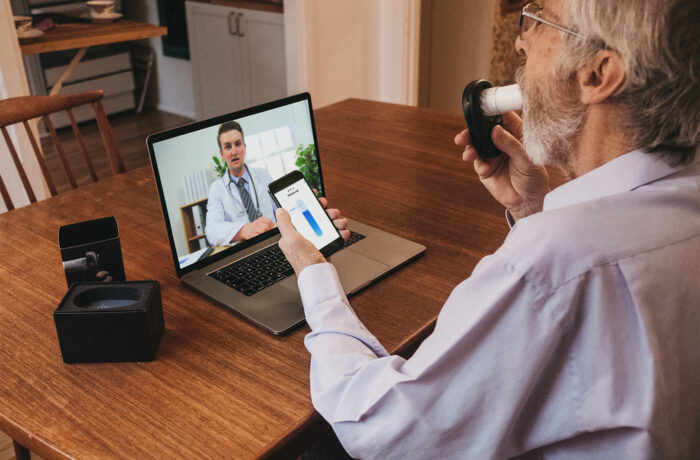Remote monitoring on the NHS: a checklist for buying tech with confidence
Posted on
Remote monitoring has the potential to transform the way that care is delivered, especially for patients with long-term conditions. That’s according to Matthew Gould, chief executive of NHSX. In a recent appearance before MPs, he said the government unit’s new procurement framework would accelerate access to remote monitoring solutions from three months to three weeks and allow NHS organisations to buy with “a lot more confidence”.

With so many new technologies on the market, how do NHS organisations select the right one? In this blog, we have put together a check-list for commissioners based on our experience as an established provider. As an alumnus of the first cohort of DigitalHealth.London’s Accelerator programme, we hope the blog also helps start-ups consider some of the questions they might be asked when pitching to the NHS.
- Is the technology NHSX-approved? The government unit is responsible for driving forward the digital transformation of health and social care. It has carried out a strict vetting of potential suppliers for its new framework. The successful bidders are listed here. NHS funding is available for deploying accredited solutions at the time of writing.
- Is the technology fully interoperable? Digital health services should be capable of ‘speaking’ to all major software systems already operating in primary, secondary and community care. They should have open APIs and be publicly available.
- Is the technology clinically effective? Clinicians should be at the forefront of the service’s design and development to ensure it meets clinical needs and quality standards. The technology should be backed up by clinical research.
- Is the technology registered as a medical device? The new Medical Device Directive might have been delayed by a year but time passes quickly and any contracts for forthcoming services should demonstrate conformity with the new laws.
- Is the technology inclusive? Not everyone has the latest smartphone or access to the internet. People with protected characteristics are less likely to be online. Digital health suppliers should offer a choice of communications channels, not just apps but also video conferencing, text messaging or even the humble old telephone landline.
- Is the technology person-centred? Importantly, this means being focused on the needs of the individual rather than the needs of the service. To succeed, health technology must provide a positive user experience.
- Is the technology data secure? A service should be in line with the Government’s code of conduct for the development and adoption of safe, ethical and effective data-driven health and care technologies. Digital health suppliers should demonstrate openness and accountability in their data use.
- Is the technology agile by design? The best services are developed through a process of constant iteration. Digital health providers should be willing and able to offer continual service improvements to meet changing needs. A flexible approach to conceptualisation, development and evaluation is essential as is speed of delivery.
- Is the technology fairly priced? Commissioners should carefully examine the pricing model before signing a contract. If a service takes off, they should not be tied into rocketing costs.
- Is the technology flexible? Digital health providers should be able to adapt their services according to need. Beware of suppliers with off-the-shelf services with limited scope for customisation. Every local area is different. A one-size-fits-all approach will only limit the success of a project.
We totally agree that remote monitoring has the potential to transform the way care is delivered, especially for patients with long-term conditions. After all, we have been providing these services for years with our partners in the NHS. We have seen first hand how remote monitoring enhances both patient health and clinical productivity and delivers a return for the taxpayer. The new framework will help spread these benefits and we are delighted to be taking part.
If you are an NHS staff member with an interest in remote monitoring and would like to hear from Inhealthcare and other SMEs in this space at a virtual event taking place on 10th December, please email Laura Walton at the Health Innovation Network for an invite.


